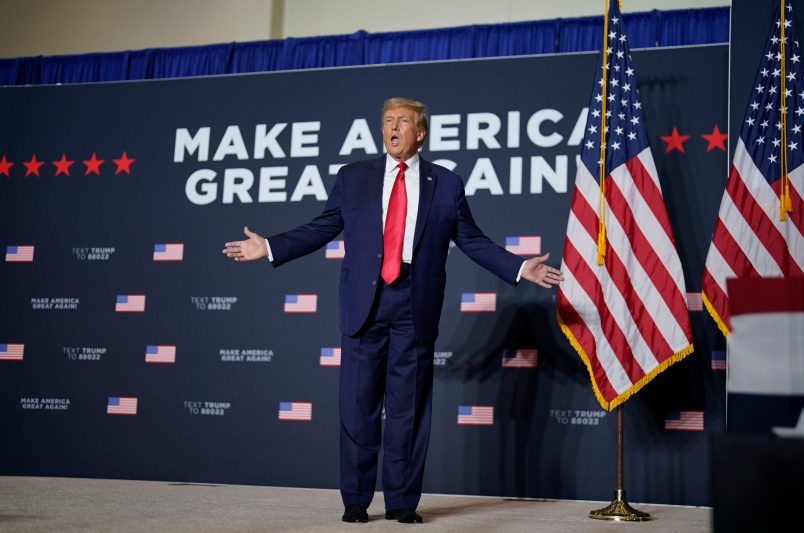The effort to remove Donald Trump from the Minnesota ballot under the Constitution’s Disqualification Clause may move far faster than you might expect.
Minnesota is one of the states which mandates that the state Supreme Court take all disqualification challenges for federal candidates.
That puts the case, filed by good government advocacy group Free Speech for People, in a strange posture, but also a potentially fast one. Instead of having to wind its way up from a state trial court through an appeals court to the state Supreme Court, the case starts off at the highest state court level.
The Minnesota case is one of several efforts around the country to bar Trump from running by using the Constitution’s ban on candidates who previously took an oath of office and then engaged in an insurrection from running again.
In Colorado, CREW filed a lawsuit similarly seeking to disqualify Trump from the ballot. But unlike the Minnesota suit, that effort is starting off in state trial court, potentially meaning a much lengthier process. Minnesota law could allow the plaintiffs to dodge that lengthy process.
Free Speech for People filed the Minnesota suit last week, seeking on behalf of a grouping of Minnesota voters to have the court find that Trump’s attempt to reverse his 2020 defeat meets the criteria for removal from the ballot laid out by the Constitution’s disqualification clause. That would then force the respondent, Minnesota Secretary of State Steve Simon (D), to disqualify Trump.
Since then, the court did the following in a Wednesday order:
- set a date for oral arguments of Nov. 2;
- ordered the two sides to effectively enter a motion to dismiss phase, instigated by the court itself;
- asked both sides to address threshold issues that include how the Disqualification Clause is enforced and whether it applies to former presidents
Parties typically raise questions about whether a suit can even be brought or is a valid claim in the context of a motion to dismiss. It’s unusual that, in this case, the court raised these questions within a week of filing, starting what amounts to a motion to dismiss phase.
The issues identified by the court concern threshold questions; not the merits questions of whether Trump engaged in insurrection, and whether the attempt to reverse his loss itself constituted an insurrection. However, the court also asked for the parties to identify any material facts that are genuinely in dispute, raising the possibility that if the the court is satisfied that the threshold questions are overcome it could hold an evidentiary hearing on whether Trump is ineligible. The groups seeking Trump’s disqualification have been focusing on those states where they feel that they have the best chance of getting to an evidentiary hearing so they can put on their full case.
Outgoing Minnesota Supreme Court Chief Justice Lorie Gildea, originally appointed by former Gov. Tim Pawlenty (R) after a vacancy and then re-elected twice, was the one to order the briefing which effectively forces all parties to address whether the case should be dismissed. The Nov. 2 oral arguments will address that, by which time Gildea will have retired.



